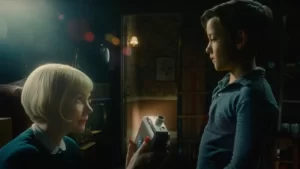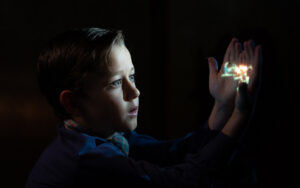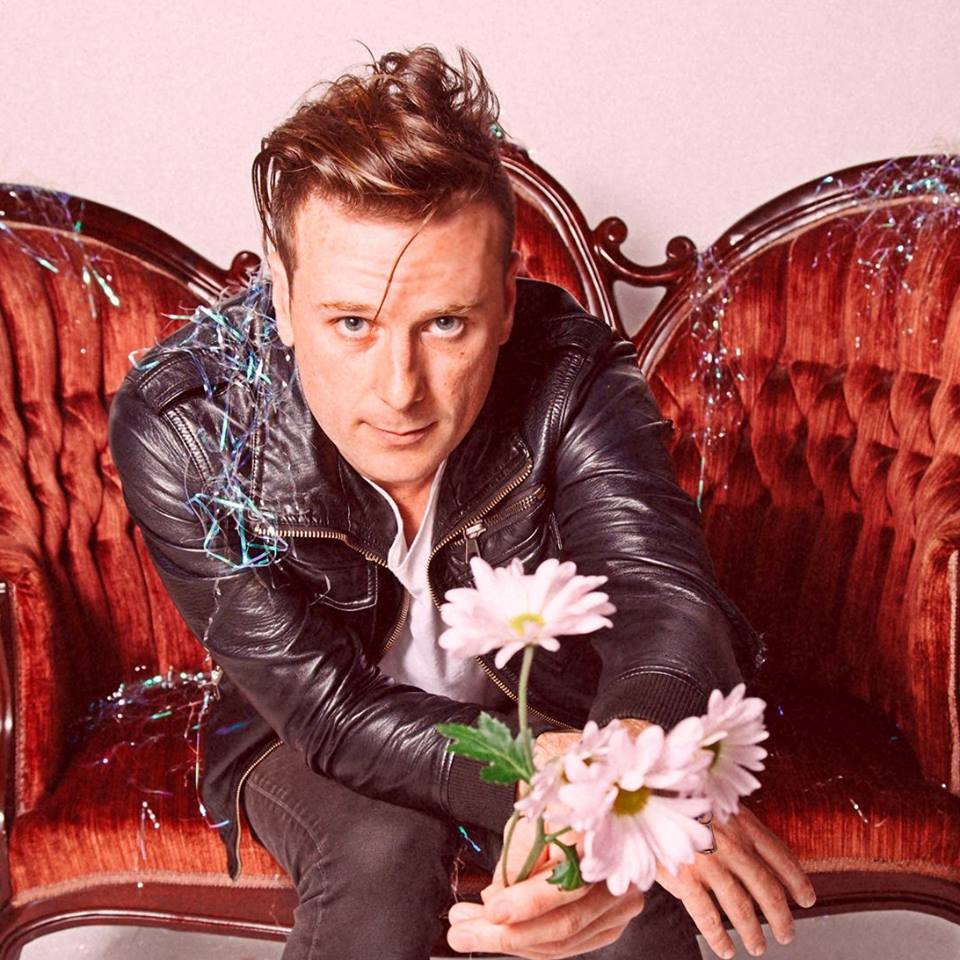After a political film with Pentagon Papers (2017), after a science fiction film with Ready Player One (2018) and after the first remake of his career with West Side Story (2021), the great Steven Spielberg changes register again with The Fabelmans. This time, the filmmaker embarks on an exciting autofiction where he tells in a disguised way his childhood, his relationship with his family and his growing desire to make films.
The Fabelmans: auto-fiction, a very fashionable genre
Definitely, the genre of autofiction is very popular in recent years, and great filmmakers are looking into the issue. After Kenneth Branagh with Belfast, Paul Thomas Anderson with Licorize Pizza or James Gray with Armageddon Time, it is Steven Spielberg's turn to tell his own childhood in a roundabout way. The filmmaker swaps Spielberg's name for Fabelmans', which literally translates to fable-men. A way for him to stage his childhood and adolescence in the 1960s. On the casting side, the filmmaker chooses Paul Dano to play his father, Michelle Williams to play his mother and the incredible Gabriel LaBelle to play himself. As always in Steven Spielberg's cinema, The Fabelmans brilliantly mixes intimacy and popular entertainment. As often in his filmography, the maestro manages to propose a staging with crazy virtuosity and above all discreet. Speilberg is a filmmaker who knows how to dose, who has a concern for the balance unique and perfectly coordinated. Without blush, without eccentricity, he offers a story of the intimate married to a lively and stimulating entertainment as he has the secret. And as usual, Steven Spielberg stands out as one of the best (if not the best) storytellers of American cinema.
As always in Steven Spielberg's cinema, The Fabelmans brilliantly mixes intimacy and popular entertainment. As often in his filmography, the maestro manages to propose a staging with crazy virtuosity and above all discreet. Speilberg is a filmmaker who knows how to dose, who has a concern for the balance unique and perfectly coordinated. Without blush, without eccentricity, he offers a story of the intimate married to a lively and stimulating entertainment as he has the secret. And as usual, Steven Spielberg stands out as one of the best (if not the best) storytellers of American cinema.
Effective characters
And this sweet mix between intimate and general public is felt especially in the writing of his characters. With The Fabelmans, Steven Spielberg obviously wants to pay tribute to his parents. He obviously wants to pay tribute to his family, to the education they instilled in him, to his sisters, to his grandparents. Nostalgic for a bygone era, Spielberg signs here an almost testamentary film, and above all of unparalleled honesty. He directed the film of a lifetime, his legacy for his family but also for his audience. Spielberg lays himself bare and tells the finally quite classic fate of a teenager who feels bad about himself and found the answer in the seventh art. But it is also this classicism that makes it a film screaming truth, and above all very evocative for its audience.Because Spielberg didn't have a difficult childhood. He grew up surrounded by love, surrounded by culture, music and cinema. The young Sammy Fabelman finally encounters the same difficulties as all the other wealthy teenagers of this beautiful blue planet. It goes through the same universal tribulations that are the death of grandparents, the first heartbreaks, the divorce of parents, the harassment of small strikes at school, the search for self, in short, nothing very surprising. And it is this simplicity in his childhood that makes it possible to concern the spectator, who thus finds himself in a meaningful narrative, which sends him back to his own childhood.  But more than a film about him, The Fabelmans is above all a work about his mother. Brilliantly embodied by Michelle Williams, she is his heroine and the heroine of his family epic. With The Fabelmans, Steven Spielberg reveals his story and that of his mother. In this way, he obviously traces his identity construction, but also, in parallel, the deconstruction, then the reconstruction, of the maternal figure. He recounts with emotion the role she played in shaping a little prodigy of the seventh art. It is she who gives him solutions to manage his anxieties and impulses, it is she who opens his eyes to the complexity of life, but also of art and love. Steven Spielberg stages a form of symbiosis between Sammy and Mitzi Fabelmans, which is integral to his personal development. The Fabelmans also depicts the complex triangular relationship between father, mother and eldest son. A difficult position for him that he manages to accommodate over time, even to accept and exploit the weaknesses in his first film productions. Films that are a real remedy for the young Spielberg, who fights his fears and neuroses with a camera in his hand.
But more than a film about him, The Fabelmans is above all a work about his mother. Brilliantly embodied by Michelle Williams, she is his heroine and the heroine of his family epic. With The Fabelmans, Steven Spielberg reveals his story and that of his mother. In this way, he obviously traces his identity construction, but also, in parallel, the deconstruction, then the reconstruction, of the maternal figure. He recounts with emotion the role she played in shaping a little prodigy of the seventh art. It is she who gives him solutions to manage his anxieties and impulses, it is she who opens his eyes to the complexity of life, but also of art and love. Steven Spielberg stages a form of symbiosis between Sammy and Mitzi Fabelmans, which is integral to his personal development. The Fabelmans also depicts the complex triangular relationship between father, mother and eldest son. A difficult position for him that he manages to accommodate over time, even to accept and exploit the weaknesses in his first film productions. Films that are a real remedy for the young Spielberg, who fights his fears and neuroses with a camera in his hand.
A tribute to the seventh art
Obviously, since The Fabelmans is about cinema, Steven Spielberg does not forget to pay tribute to the seventh art. Through sublime photography, exceptional acting direction (Seth Rogen, Paul Dano, Michelle Williams and Gabriel LaBelle are impressive), and a magnificent play on lights and shadows, Steven Spielberg offers his own declaration of love to his passion, to his life: cinema.  Spielberg uses the entire lexical field of the seventh art with The Fabelmans to sign a touching, refined and delicate declaration of love. He draws up a handful of sensitive and poetic images such as that of a child amazed/worried by the derailment of a train, his first memory of cinema. The nod to The Arrival of a Train at La Ciotat Station by the Lumière brothers is obvious, and the relationship to childhood, whether through the prism of innocence or creation, is of a simple and incredible power. Then come the projectors, the cinemas, the films, the editing instruments, so many sets, so many details, which allow the audience to experience the cinema with full hands. Finally, we would be remiss if we did not mention David Lynch, amazing in the skin of an expeditious and grumpy John Ford, another example of his tribute to the seventh art. With The Fabelmans, Steven Spielberg returns to the roots of his own art and gives thanks to the craftsmanship of cinema. https://youtu.be/He4maFN1wGQ Without revolutionizing the genre or the themes he tackles, Steven Spielberg signs a solid film with The Fabelmans. The filmmaker manages to capture the emotion he seeks and manages, once again, to make the intimate extremely cinematic.
Spielberg uses the entire lexical field of the seventh art with The Fabelmans to sign a touching, refined and delicate declaration of love. He draws up a handful of sensitive and poetic images such as that of a child amazed/worried by the derailment of a train, his first memory of cinema. The nod to The Arrival of a Train at La Ciotat Station by the Lumière brothers is obvious, and the relationship to childhood, whether through the prism of innocence or creation, is of a simple and incredible power. Then come the projectors, the cinemas, the films, the editing instruments, so many sets, so many details, which allow the audience to experience the cinema with full hands. Finally, we would be remiss if we did not mention David Lynch, amazing in the skin of an expeditious and grumpy John Ford, another example of his tribute to the seventh art. With The Fabelmans, Steven Spielberg returns to the roots of his own art and gives thanks to the craftsmanship of cinema. https://youtu.be/He4maFN1wGQ Without revolutionizing the genre or the themes he tackles, Steven Spielberg signs a solid film with The Fabelmans. The filmmaker manages to capture the emotion he seeks and manages, once again, to make the intimate extremely cinematic.








































